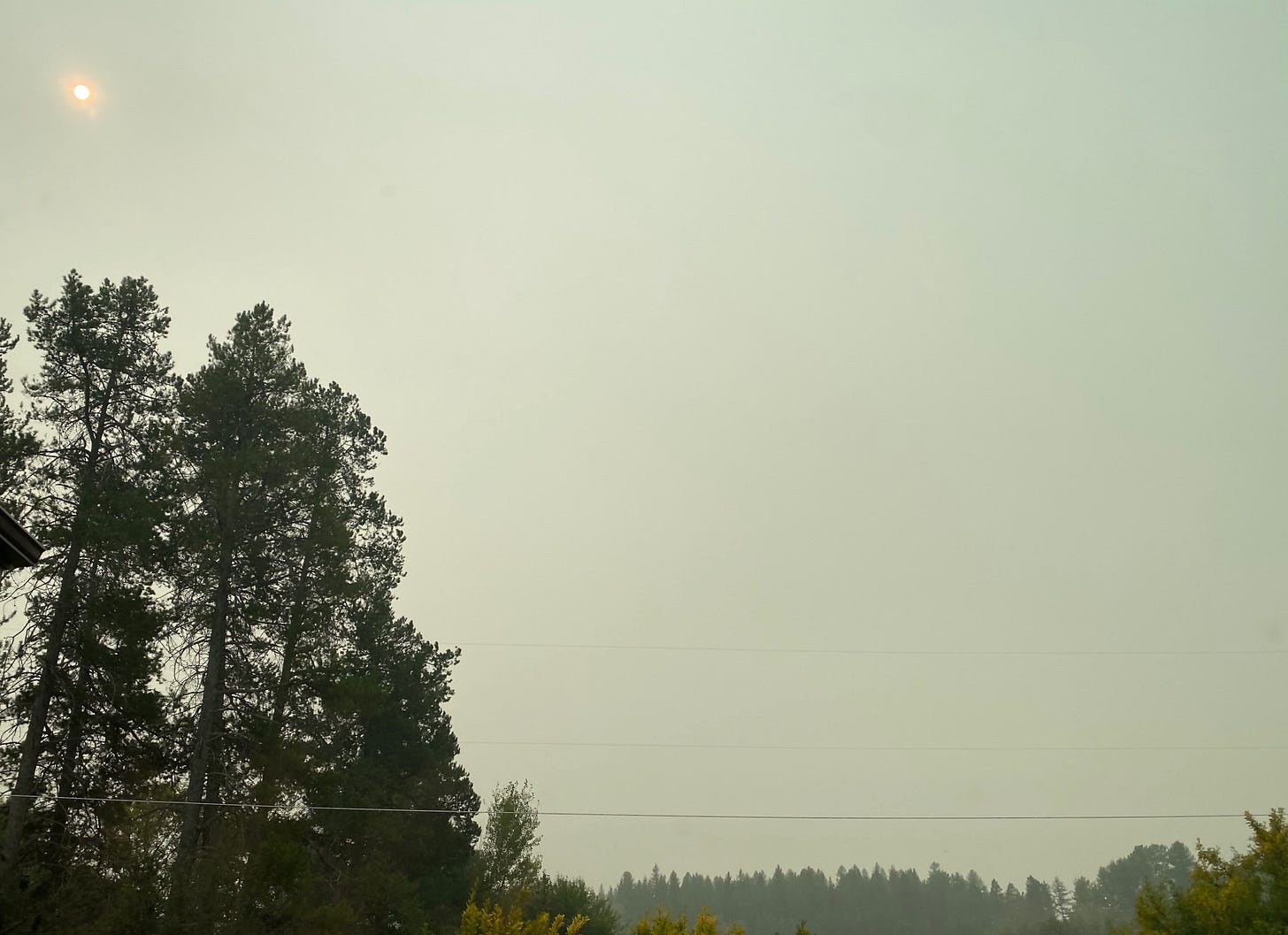
A friend invited us over to glean from their plum trees last weekend. I picked enough to make fruit leather and jam for the winter, and the trees still looked like they’d hardly been touched. Fruit trees, I thought as I picked, expose capitalism’s lie of scarcity.
And then the smoke rolled in and we closed our windows and watched the sun turn red and I checked a list against the contents of our emergency bag before pitting the plums and turning my thoughts to bounty.
___
Ever since the local bookseller introduced me to N.K. Jemisin’s Broken Earth trilogy, fire season reminds me of her novels (and of Octavia Butler, who Jemisin has said was a tremendous influence in her).
In The Fifth Season, the first of the Broken Earth trilogy, we’re introduced to an Earth that periodically has some sort of volcanic or seismic event, called a “Season” (hence “Fifth Season”), with the destructive effects of each season often lasting for decades and upending normal life. Except that “normal” describes a world built to respond to these events—not with firepower or technology because those are repeatedly destroyed by Earth’s periodic seasons but with localization and community. No agrarian utopias here: These communities are towns, often walled, that are porous and fluid until a season comes, and then they shut their borders and try to survive with the people and resources left inside. There is no rugged individualism or survivalist tendency. Without the complexity and diverse skills of a community, survival isn’t possible.
Jemisin’s world, set around 40,000 years in the future, is not kind. As Earth is no longer a bountiful and forgiving place, all people must have something useful to contribute—each person’s name, in fact, consists of a first name, a middle name that indicates their skill class or “use-caste” (leader, breeder, etc.), and last name that is simply the name of their community. At the same time, orogenes, people who have the ability to control stone and its forces, are scorned, feared, oppressed, enslaved, and killed.
It’s a worrisome if interesting portrait of what happens to people when the planet they evolved on can’t be trusted to support them. Community is acknowledged as necessary, the only way of life that can ensure survival, but it’s hardly depicted as soft and generous (though individual people might be). The implication is that it can’t afford to be.
I think I’m going to pick more plums. Anyone want some jam? I’ve never made plum jam before but if I get enough fruit leather stocked up I’ll give the jam a shot.
___
Some slightly related things I listened to or read this week:
Former farmer Tom Philpott on the Smarty Pants podcast talking about our broken agricultural system and his book Perilous Bounty.
Evolutionary biologist Rob Wallace, also on Smarty Pants, on how intensive agriculture inevitably led to a pandemic, and how conversations about fixing the system seem to be willing to consider everything except changing the real problem—the economic model.
Historian Rutger Bregman (the guy who pissed off all the billionaires at Davos) talking on the Futures podcast about how the true superpower of humanity is in our ability to cooperate, and that in an uncertain future you’re far better off acquiring friends than wealth.
“Repairing the Broken Earth: N.K. Jemisin on race and environment in transitions,” by Alastair Iles in Elementa: Science of the Anthropocene.
“The Ecological Vision That Will Save Us,” by Kevin Berger in Nautilus: “We either act in concert with the environment that gives us life, or the environment takes life away.”
Meteorologist Eric Holthaus talking on the At a Distance podcast about the need for cooperation to combat the climate emergency.
FUN! Baking bread using 4,000-year-old yeast on Sapiens.



If you make plum jam, I'll try some! It will give us an excuse to figure out a way to see each other too. :)